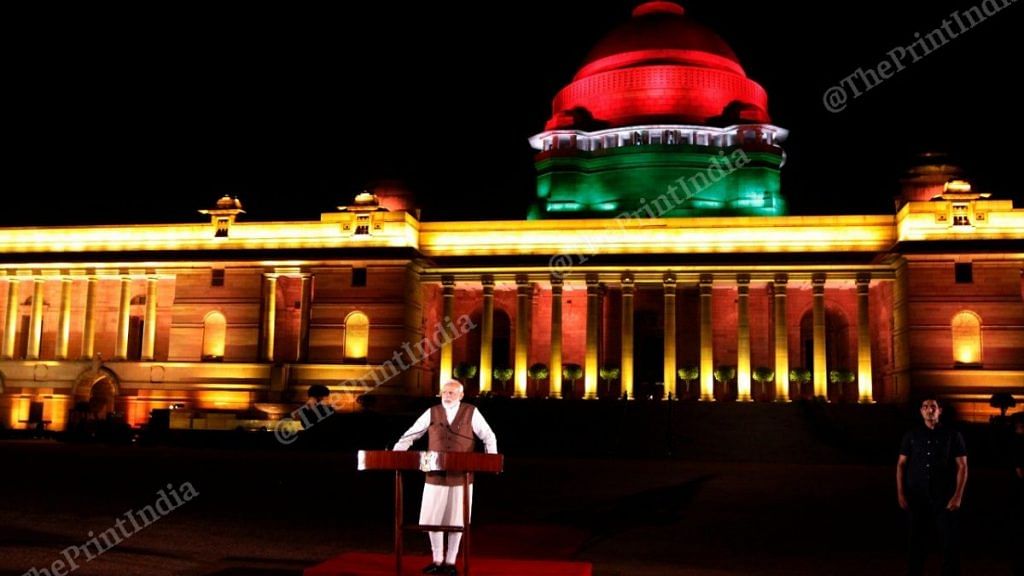The character of the Ministry of External Affairs is surely, but certainly, changing under the new Narendra Modi government. It is slowly becoming a far more presidential system under Prime Minister Modi and nothing demonstrates this better than the appointment of S. Jaishankar as the external affairs minister.
Like in the US, a “revolving door policy” – where senior executive appointments are made by a new administration when it comes to power – has now been inaugurated in India. Jaishankar, after his retirement as foreign secretary, worked with a major corporate group, the Tatas, before he returned to the government, albeit in a much more powerful role.
As has been said before, Modi’s eyes and ears are Jaishankar and national security adviser Ajit Doval. Because Modi wants quick decisions, these two with direct lines to the PM, are expected to carry out his orders. Each of them is staffed by able men and women in their respective establishments – the MEA and the many intelligence agencies, respectively – and will supply information as the need arises.
The good old days of powerful joint secretaries who suggested, influenced and carried out major policy decisions is slowly, but surely, giving ways to authoritative new people.
Also read: What IFS Jaishankar’s speeches reveal about Minister Jaishankar’s roadmap for India
Here are four examples to substantiate this point:
First, the impending meeting between PM Modi and his Pakistani counterpart Imran Khan in Bishkek has been in the pipeline for some time. Even at the height of the India-Pakistan crisis, senior intelligence officials close to Ajit Doval were in touch with their Pakistani counterparts.
The chairman of the Pakistani Senate Foreign Relations Committee Mushahid Hussain has confirmed to ThePrint that these conversations have been ongoing, especially regarding the return of captured IAF pilot Abhinandan Varthaman to India. “Several foreign governments also got involved”, Hussain added, “and Pakistan did the noble gesture by returning the pilot.”
Now, it seems that these foreign governments, led by the US at the Financial Action Task Force (FATF) meeting in China recently, warned Pakistan that it must take action against these terror groups. Pakistan has, indeed, taken action against them, by shutting down 13 camps of the Jaish-e-Mohammed (which carried out the Pulwama attack), the Lashkar-e-Taiba and the Hizbul Mujahideen.
Note that this move comes on the eve of the Modi-Imran meeting in Bishkek on 13-14 June.
Also read: Pakistan shuts down terror camps, to reopen airspace ahead of Modi-Imran photo op
Second, Jaishankar and Doval are dividing up the neighbourhood between them. Doval is the Pakistan expert and will keep an eye on China in his capacity as Special Representative of the China-India border talks. Moreover, in PM Modi’s first visit abroad to the Maldives and Sri Lanka last weekend, Doval accompanied him, while Jaishankar went to Bhutan.
Doval is also expected to travel to Bishkek with Modi– Jaishankar is likely staying back in Delhi. This means that Doval will accompany Modi on all his meetings to Chinese president Xi Jinping, Imran Khan, etc.
Information is power, as Napoleon said long ago, but proximity certainly is.
Third, Jaishankar is Modi’s point man on the US, the country with which India’s relationship is in terrible shape. The Americans are pushing for greater Indian purchases of their defence goods, as ThePrint reported, instead of Russian.
US officials say that it is helping India out on the Pakistan front (helping release pilot Abhinandan Varthaman), shoring up India on the China front and is open to giving Delhi a way out of US sanctions on Iran’s Chabahar port – but India seems to be distributing its affections on Russia, which awarded Modi the Order of St. Andrew even before the elections, and other nations.
Also read: Ajit Doval back as NSA, new Cabinet-rank status ‘reward’ for first stint
Iran’s deputy foreign minister Mohammad Kazem Sajjadpour and his India pointperson Ambassador Mousavi were in Delhi last week for Track Two conversations with the government on how to resolve the oil sanctions.
“India and Iran will find a way to manage this crisis, we have to,” Sajjadpour told ThePrint.
Jaishankar, as a former ambassador to the US, is expected to sort out these prickly issues.
Fourth, India has just voted along with Israel for the first time against a Palestinian group based in Lebanon, which Israel has declared a terror organisation.
Thank you #India for standing with @IsraelinUN and rejecting the request of terrorist organization “Shahed” to obtain the status of an observer in #UN. Together we will continue to act against terrorist organizations that intend to harm. pic.twitter.com/erHTfuY1A1
— Maya Kadosh (@MayaKadosh) June 11, 2019
Make no mistake, Modi seems determined to lead on the foreign policy front with a few people he considers can pave the way for quick outcomes. This formula works well in nations with uniform polities.
While India has always managed a small ministry of external affairs, and the prime minister from Jawaharlal Nehru downwards has always taken a keen interest in foreign policy, Modi’s channelling of national interest abroad is both unique and interesting.
